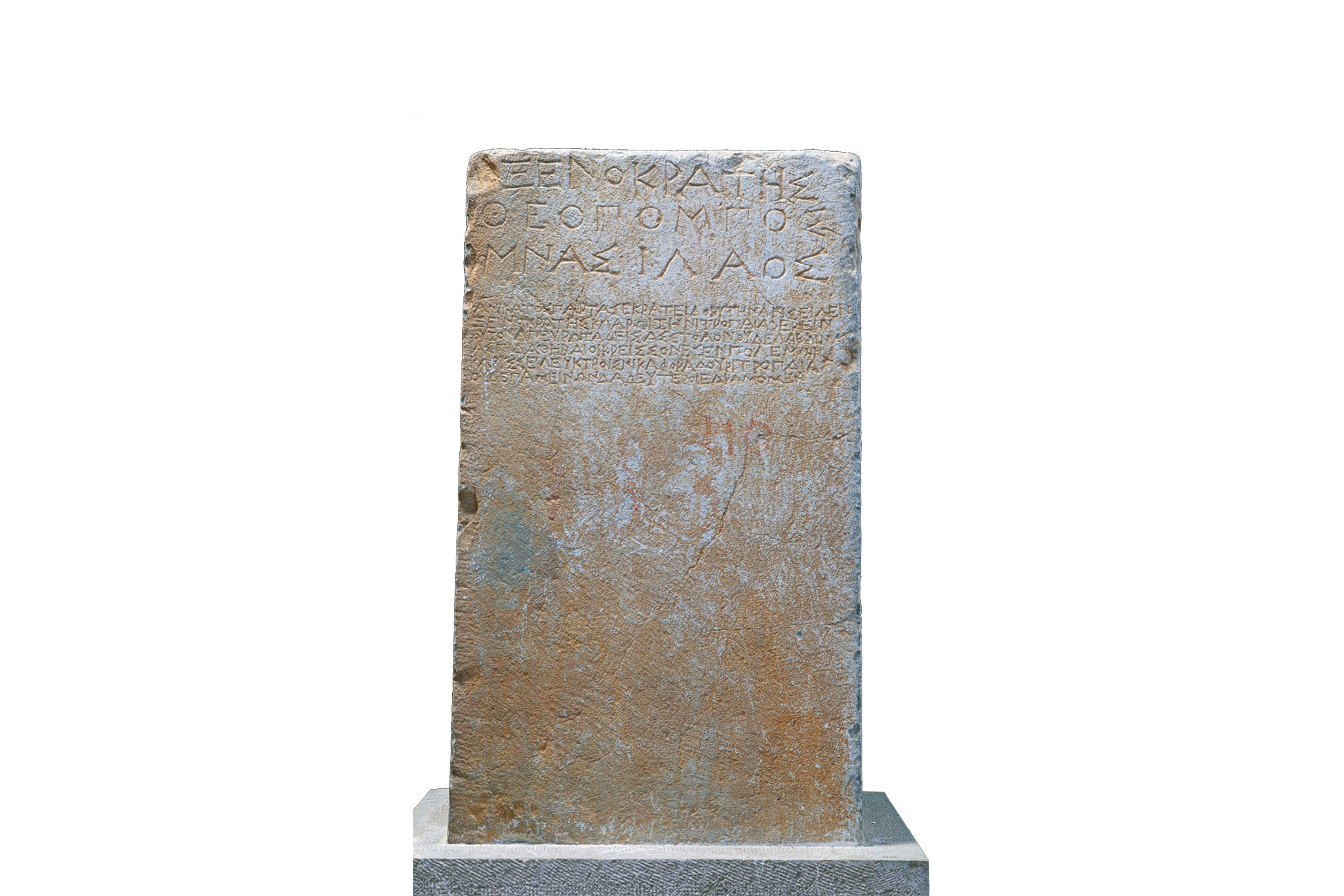Cut stone block, with an epigram that refers to the battle of Leuktra
The block of stone bears the names of three Thebans, Xenocrates, Theopompos and Mnasilaos, and an epigram that refers to the battle of Leuktra.
| Ξενοκράτης, Θεόπομπος, Μνασίλαος. vacat ἁνίκα τὸ Σπάρτας ἐκράτει δόρυ, τηνάκις εἷλεν |
|
| 5 | Ξεινοκράτης κλάρωι Ζηνὶ τροπαῖα φέρειν οὐ τὸν ἀπ’ Εὐρώτα δείσας στόλον οὐδὲ Λάκαιναν ἀσπίδα. “Θηβαῖοι κρείσσονες ἐν πολέμωι” καρύσσει Λεύκτροις νικαφόρα δουρὶ τροπαῖα, οὐδ’ Ἐπαμεινώνδα δεύτεροι ἐδράμομεν. |
| Xenocrates, Theopompos, Mnasilaos. vacat |
|
| When Sparta was still all-mighty, then lots fell to Xenocrates a trophy for Zeus to set up, without fearing the army from Eurotas, nor the Laconian shields. “The Thebans were superior in battle!” This proclaims the trophy of victory at Leuktra. “We were not second to Epaminondas!” |
The three men were killed in the battle of Leuktra or in some later battle of the period of Theban hegemony. Xenocrates is the only one of the three dead who is mentioned in the philological sources. According to them, Xenocrates was one of the Boeotarchs who supported Epaminondas’ proposal for a direct attack against the Spartans. This decision led to the battle of Leuktra and their final victory. In the epigram engraved below the names of the three Thebans, only Xenocrates is mentioned by name. According to the epigram, the lot fell to Xenocrates to dedicate a trophy to Zeus. After the battle of Leuktra many stories circulated according to which the oracle of Zeus Trophonios in Lebadea contributed to the victory. According to Pausanias, they won by following the oracle of the god, setting up before the battle a trophy which bore the shield of the Messenian hero and enemy of the Spartans, Aristomenes.
Α recent study argued convincingly that the inscription should be dated after the rebuilding of Thebes by Cassander in 316 BC. The epigram of the three Theban generals appears to have been carved during this period, along with other important inscriptions, highlighting Thebes’ glorious past and its victories in various wars.
